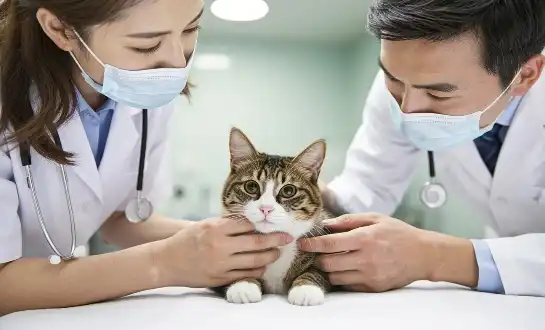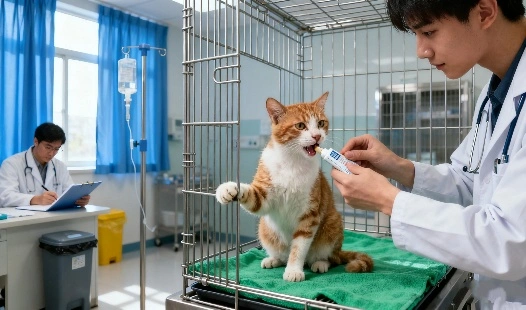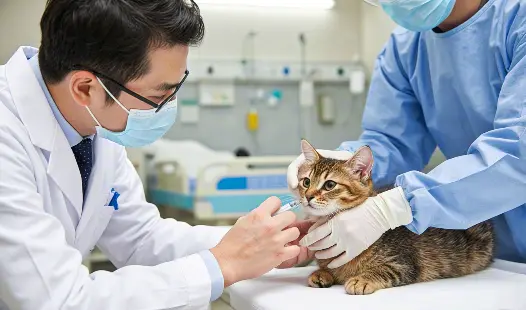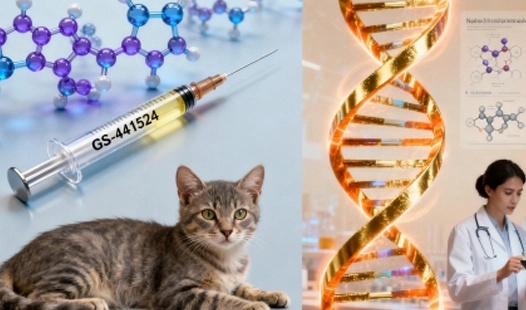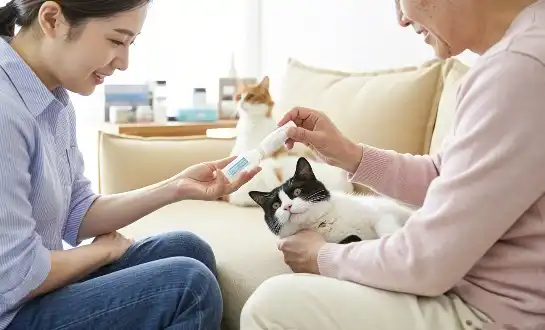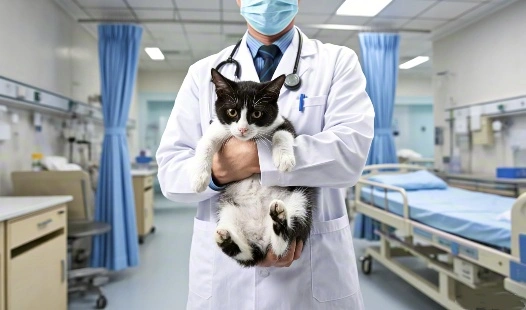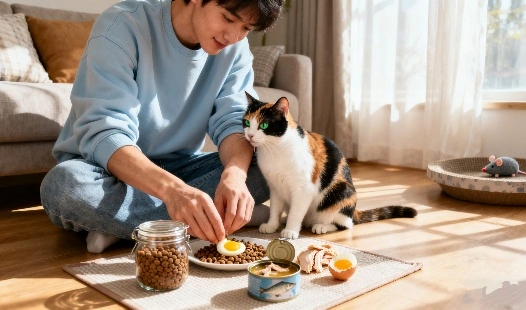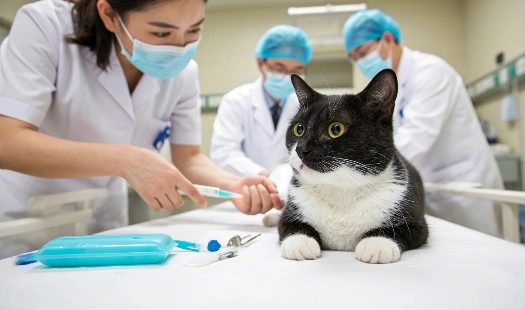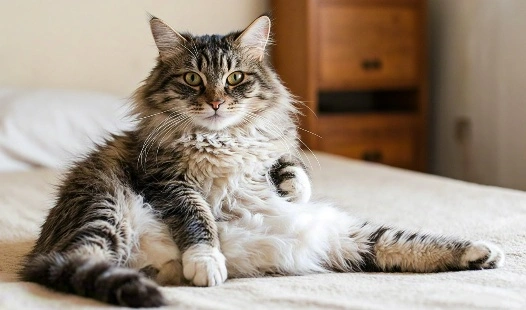The prognosis for feline infectious peritonitis (FIP) has been bleak for quite some time, as the disease was long regarded as an untreatable and almost always fatal condition. For years, both veterinarians and cat owners faced limited options, with supportive care being the only available approach to manage symptoms. However, new developments in veterinary care have started to change this outlook, giving both pet owners and medical professionals reason to be optimistic about the future. Among the most promising advancements is the introduction of GS-441524 drug therapy, which has demonstrated remarkable potential in extending survival and even achieving remission in some cases. This detailed guide will lead you through the processes that could possibly contribute to an eventual FIP Cure, including treatment protocols, ongoing research, and practical considerations for ensuring the best outcomes.
Step-by-step FIP treatment guide
Diagnosis and early intervention
Early diagnosis is crucial for successful FIP treatment, as timely intervention can significantly improve the chances of a positive outcome. If your cat begins to show concerning symptoms such as unexplained weight loss, persistent fever that does not respond to antibiotics, or noticeable abdominal swelling due to fluid accumulation, it is essential to consult a veterinarian immediately. These clinical signs, though sometimes vague, are often the earliest indicators of feline infectious peritonitis and should never be ignored. A veterinarian will conduct a thorough physical examination, review the cat's medical history, and perform various diagnostic tests, including blood work, imaging, and sometimes fluid analysis, to confirm the FIP diagnosis and determine the most appropriate treatment approach.
Selecting the appropriate treatment protocol
Once FIP is diagnosed, your veterinarian will recommend a treatment plan. The GS-441524 drug has shown remarkable results in treating FIP. The dosage and duration of treatment depend on the type and severity of FIP:
- Wet or dry FIP without ocular or neurological signs: 4-6 mg/kg daily for 12 weeks
- FIP with ocular lesions: 8 mg/kg daily for 12 weeks
- FIP with neurological signs: 10 mg/kg daily for 12 weeks
Administering the treatment
The GS-441524 drug is typically administered through subcutaneous injections, a method that allows the medication to be absorbed gradually into the bloodstream. This route of administration has been shown to be effective in delivering consistent therapeutic levels of the drug, which is essential for treating feline infectious peritonitis. Your veterinarian will provide detailed instructions and guidance on proper injection techniques, including how to safely handle the medication, prepare the syringe, and select the correct injection sites. They will also emphasize the importance of rotating injection sites to minimize discomfort, prevent localized irritation, and reduce the risk of tissue damage. With proper technique and veterinary supervision, this treatment can be administered safely at home, making long-term therapy more manageable for both cats and their owners.
Supportive care during FIP therapy
Nutrition and hydration
Proper nutrition is essential during FIP treatment, as it plays a critical role in supporting your cat's immune system and overall recovery. Offering your cat high-quality, easily digestible food ensures that they receive the necessary nutrients without putting additional strain on their digestive system. Protein-rich diets and foods fortified with essential vitamins and minerals are often recommended to help maintain strength and energy levels throughout treatment. However, many cats undergoing FIP therapy may experience a reduced appetite due to illness or medication side effects. In such cases, it is important to consult your veterinarian about the use of appetite stimulants or assisted feeding methods, such as syringe feeding or specially formulated recovery diets. Ensuring proper nutrition can greatly enhance treatment effectiveness and improve your cat's quality of life during recovery.
Managing side effects
While GS-441524 drug is generally well-tolerated, some cats may experience injection site reactions. To manage these:
- Rotate injection sites
- Clean the area with diluted hydrogen peroxide
- Consider using gabapentin before injections to reduce pain
Monitoring FIP recovery progress
Regular veterinary check-ups
Schedule follow-up appointments with your veterinarian every 4 weeks during treatment. They will perform blood tests to monitor your cat's progress, including:
- Complete Blood Count (CBC)
- Serum chemistry panel
- Protein levels (total protein, albumin, globulin, A:G ratio)
At-home monitoring
Keep a daily log of your cat's:
- Temperature
- Weight
- Activity level
- Appetite
- Clinical signs related to the original FIP diagnosis
Assessing treatment effectiveness
Most cats show improvement within 24-72 hours of starting treatment. By 2-4 weeks, many cats return to normal or near-normal health. Key indicators of successful treatment include:
- Weight gain
- Improved activity levels
- Normalized blood test results
- Resolution of original FIP symptoms
Conclusion
With the introduction of the GS-441524 treatment, the quest for a FIP Cure has advanced significantly. Despite the difficulty, many cats have managed to recover from this deadly illness. You can increase your chances of a successful outcome by getting a diagnosis early, getting the right treatment, and keeping a close eye on your progress.
FAQ
1. Q: How long does FIP treatment with GS-441524 typically last?
A: The standard treatment duration is 12 weeks. However, some cases may require longer treatment periods based on the cat's response and the severity of the disease.
2. Q: Can FIP recur after successful treatment?
A: While rare, relapses can occur, especially if treatment is stopped prematurely. It's crucial to complete the full course of treatment and monitor your cat closely for several months after treatment ends.
3. Q: Are there any alternatives to injectable GS-441524 for treating FIP?
A: Oral forms of GS-441524 are available, but they may be less effective at higher doses. Injectable forms are generally recommended, especially for severe cases or neurological FIP.
Reliable GS-441524 – Fast Shipping
We at BLOOM TECH know how important it is to provide dependable veterinary medications to combat FIP Treatment. Our GS-441524 powder is made in accordance with GMP guidelines, which guarantee the utmost degree of purity and uniformity, making us a reliable GS-441524 manufacturer. You can rely on our dependable logistics and low pricing to meet all of your FIP Cure demands, thanks to our expert R&D team and newly established supply chain.
Don't let FIP take away your beloved feline companion. Take action today and explore our GS-441524 options. For more information or to place an order, please contact our dedicated team at Sales@bloomtechz.com. Together, we can make a difference in the lives of cats affected by FIP.
References
1. Pedersen, N. C., et al. (2019). Efficacy and safety of the nucleoside analog GS-441524 for treatment of cats with naturally occurring feline infectious peritonitis. Journal of Feline Medicine and Surgery, 21(4), 271-281.
2. Addie, D. D., et al. (2020). Feline infectious peritonitis. ABCD guidelines on prevention and management. Journal of Feline Medicine and Surgery, 22(11), 1028-1048.
3. Dickinson, P. J., et al. (2020). Antiviral treatment of cats with FIP. Veterinary Clinics of North America: Small Animal Practice, 50(5), 969-986.
4. Murphy, B. G., et al. (2018). The nucleoside analog GS-441524 strongly inhibits feline infectious peritonitis (FIP) virus in tissue culture and experimental cat infection studies. Veterinary Microbiology, 219, 226-233.














